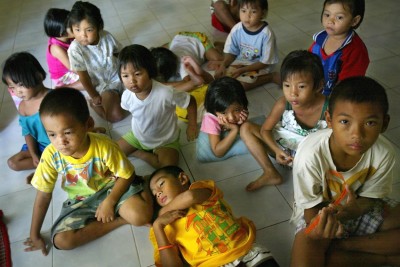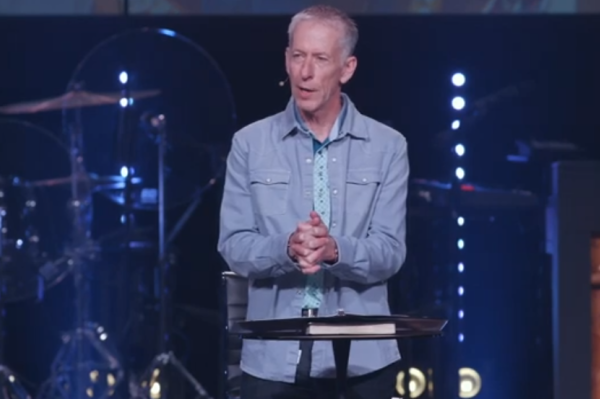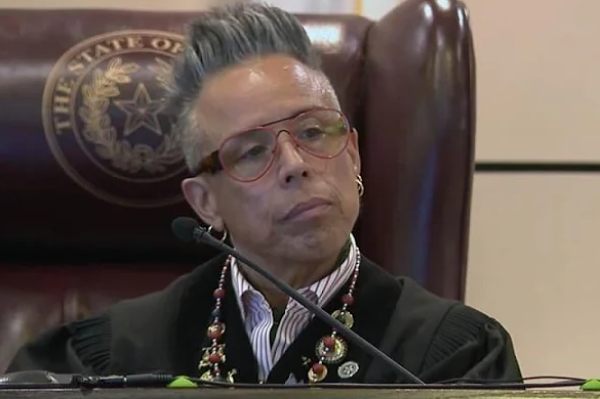Thailand has an orphanage crisis. Are Christians to blame?

Imagine you have kids and live in extreme poverty. Now imagine a stranger offering to raise your children, promising them a better life. They will live apart from you, at an unregistered orphanage, but at least their basic needs will be met. Would you consider this option?
It’s hard to fathom saying yes, but if we were in that same dire situation, we may feel like we had no other choice. And that’s exactly what American Christians are asking of vulnerable families in Thailand. It needs to stop.
In Thailand today, 120,000 children are living in institutional care, and that’s likely a low estimate. Many of those children are housed within the country’s estimated 700 private orphanages and 32 government-run residential care facilities. In Chiang Mai alone, a city the size of Philadelphia, there are 175 children’s homes, but only 50 of them are registered with the government. The worst part — 89% of the homes in Chiang Mai are run by Christians.
Many in the U.S. aren’t aware of it, but Thailand has an orphanage crisis.
Thailand’s history of best intentions
I came to Thailand almost 40 years ago to work at an orphanage during my summer break as a teacher. I quickly fell in love with the children and decided to return and stay long-term. But after getting to know the children and learning their language, I discovered that most of them weren’t actually orphans.
This is the norm — studies show that 80% of children in orphanages and other forms of residential care around the world have a living parent. In Thailand, that number is 90%. Most of us know intuitively that families are a better setting for children to thrive, and research supports that. Essentially every aspect of their development suffers in a residential care setting. So, how did this crisis become what it is today?
Orphanages started in Thailand to care for children living in extreme poverty, which is still the primary reason they are there today. As a predominantly Buddhist country, orphanages have historically had a lot of financial support from the public, since giving is motivated by the concept of karma. Many Christians also came to start orphanages with the best of intentions, a process made easy by Thai laws that lack regulations and oversight. This allowed the majority of them to be unregistered, unregulated, and operating without accountability.
Today, U.S. Christians continue to create, fund and volunteer in these facilities without realizing the full ramifications of their actions — and I know this because I lived it.
Know better, do better
I worked in orphanages for years with a heart to care for the most vulnerable Thai children, but after having my own kids, a shift happened. With my new perspective as a mother, and my discovery of the research on children in orphanages, I suddenly understood that all children belong with their families — and that I have a part to play in making that a reality.
Step Ahead Thailand, the organization my husband and I founded, started in 2002 with a focus on family strengthening. For us, family strengthening looks like services that “empower the family by addressing areas that put a child in the home at risk, providing resources where they are lacking, and to build up skills so the family can sustain these changes independently and long into the future.”
Our goal is to see every child in Thailand grow up in a safe and nurturing family, not an orphanage. Thankfully, we’re one of many organizations supporting this shift toward family-based care for orphaned and vulnerable children, in Thailand and around the world.
The road is long, but we’re making noteworthy progress. Currently, we are partnering with two organizations in the Alternative Care Thailand (ACT) coalition to transition Thai children under the age of seven from one of the government-run orphanages into family-based care. But we aren’t stopping there.
We are also calling for three major legislative reforms: a moratorium on new orphanages opening, mandatory registration for existing orphanages, and for no children under 3 years old to be placed or remain in residential care. We believe these changes are possible and would bring us one step closer to our goal of family-based care for all.
Signs of hope
There is a growing awareness in the U.S. and around the world about these major issues in Thailand, along with the need for kids to grow up in a loving family. Though we have a lot of work to do, I am hopeful for Thailand’s future.
The current process of transitioning children from the first government orphanage into families is a major step in the right direction. Last year, while working with the community, we asked people what their dreams were for these kids. Every one of the answers included that they would have a family. Instinctively, we all understand that family is where children thrive.
But American Christians must do their part if these dreams of family are going to become a reality. We must stop the revolving door of volunteers coming into the country to serve at orphanages. We call this “orphanage tourism” — when well-intentioned international volunteers come here to work for a short time and then leave. The Church needs to understand the harm it is doing and stop supporting this traumatic cycle.
Instead of sending volunteers to orphanages, churches can volunteer with and bolster the organizations already doing the work of supporting vulnerable families in Thailand. This simple shift would have an enormous impact.
If there’s anything I’ve learned since I first stepped into an orphanage in Thailand 40 years ago, it’s that major changes in the country’s care system are possible. The government, NGOs and concerned individuals around the world all have an opportunity to push forward the work of keeping Thai children where they belong — with their families.
Kimberly Quinley is the executive director of Step Ahead Thailand.





















